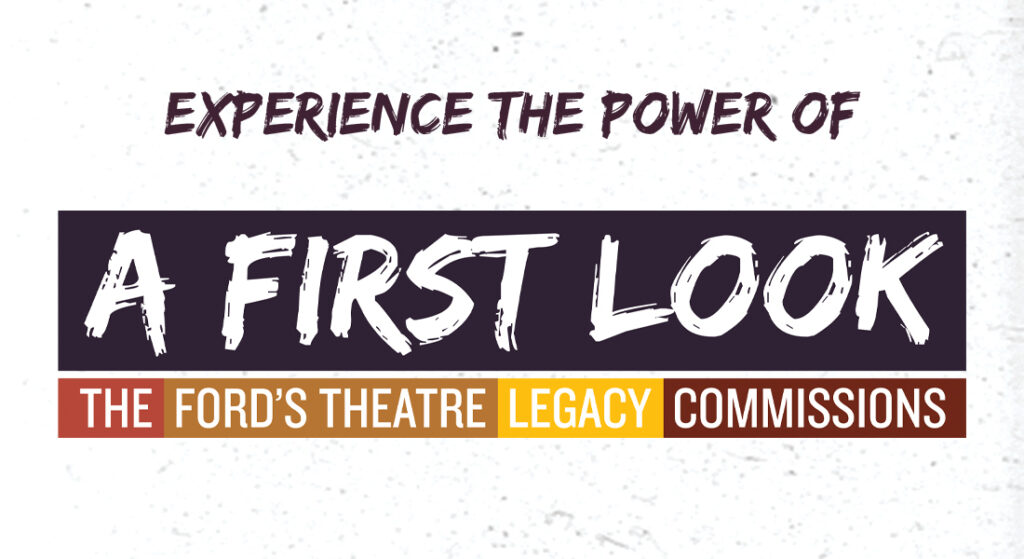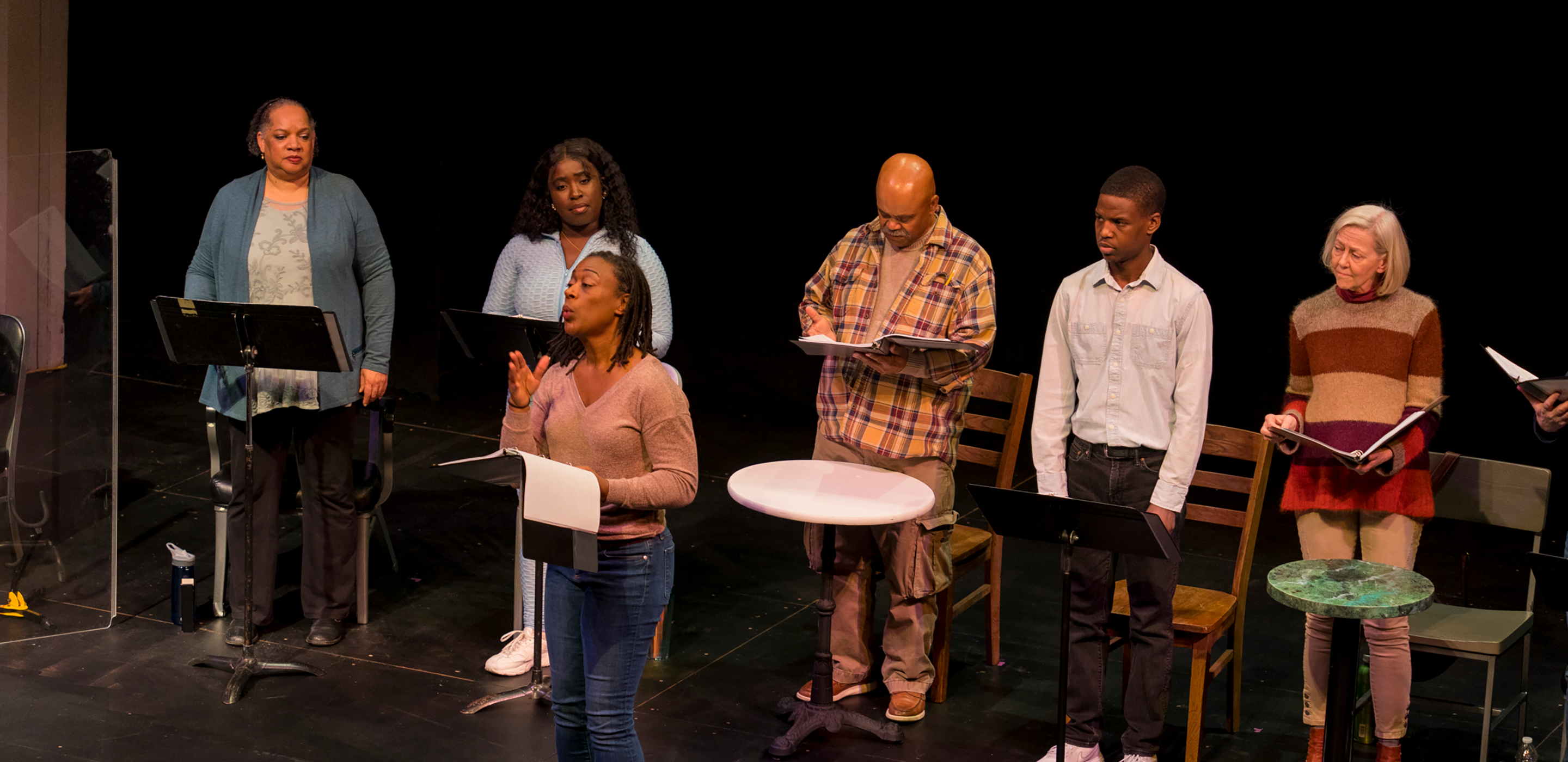
The Ford’s Theatre Legacy Commissions
Ford’s Theatre presents a new artistic initiative for playwrights that will broaden the American theatre canon. Established in 2021, with first workshops in 2023, the Ford’s Theatre Legacy Commissions serves as an artistic incubator for stories about social justice and racial history and explores the varied experiences of underrepresented characters and lesser-known historical figures, including unsung heroes responsible for changing the course of civil rights and equality in American life.
The Commissions process will include extensive development, encompassing first readings, developmental workshops and world premiere productions within the next decade. The Commissions initiative is led by Ford’s Theatre Senior Artistic Advisor Sheldon Epps, Director of Artistic Programming José Carrasquillo and The Ford’s Theatre Legacy Commissions Advisor Sydné Mahone.
Playwrights Pearl Cleage, Rickerby Hinds, Nambi E. Kelley, Dominic Taylor and Charlayne Woodard comprise the inaugural writers of The Ford’s Theatre Legacy Commissions. The second cohort of The Ford’s Theatre Legacy Commissions is composed of Nilo Cruz, Chess, Gloria Reuben, Jeanne Sakata and Madeline Sayet.
“Our aim is to provide ground-level support for writers to do their best. It’s been important to create that kind of positive, even nurturing environment to encourage the work. We want the writers to feel supported, honored, and respected throughout this process.”
Sheldon Epps, Ford’s Theatre Senior Artistic Advisor
Performances
Inaugural Playwrights
Pearl Cleage
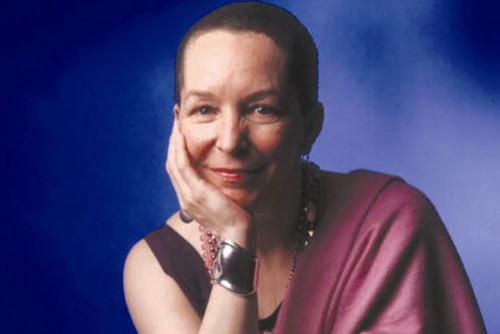
Pearl Cleage is a playwright, novelist, poet and political activist. Cleage’s plays and novels deal with themes of racism, sexism and feminism. Her plays, novels, poems and essays have been anthologized and are the subject of scholarly analysis. Her best-known plays, Flying West (1992) and Blues for an Alabama Sky (1995), have been performed in regional theatres across the United States. In 1996, Blues for an Alabama Sky was performed during the Atlanta Summer Olympic Games as part of the Cultural Olympiad. She is the Playwright in Residence at Atlanta’s Alliance Theatre.
Commission: Something Moving: A Meditation on Maynard, Workshop – February 2023, Production – September-October 2023
Rickerby Hinds
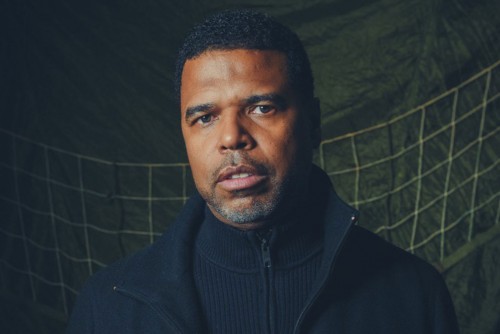
Rickerby Hinds is a pioneer of Hip-Hop Theater. His work has been developed at the Mark Taper Forum, Bay Area Playwrights Festival, The Royal Court Theatre in London and The Oregon Shakespeare Festival, where he presented Blackballin’ (2008), the first hip-hop play in their history. His play Dreamscape (2016) became the recipient of multiple theatre accolades in the Los Angeles area. Hinds’ plays have toured Romania, Poland, Austria, Hungary and Turkey. Hinds completed a Fulbright Fellowship in his native Honduras in 2016. He serves as chair of the Department of Theater, Film and Digital Production at the University of California, Riverside, and is the founding director of Riverside Studios.
Commission: Blackbox, Workshop – February 2023
Nambi E. Kelley
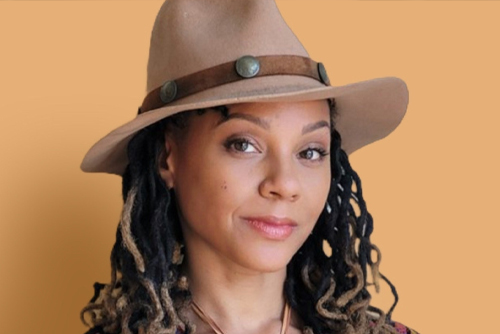
Nambi E. Kelley is an actress and playwright with an extensive résumé in the United States and internationally. Most recently she appeared in the lead role of Dominique Morisseau’s Pipeline (City Theatre) and the off-Broadway production of Kunstler (59 E. 59). Her television credits include Elementary, Person of Interest, Madam Secretary, Chicago PD and Chicago Justice. Kelley is a former playwright-in-residence at the National Black Theatre and the Goodman Theatre. She is a former Dramatists Guild Fellow. Kelley is recipient of the 2020 National New Play Network annual commission, the Prince Prize (2019) and a Dramatists Guild Foundation Writers Alliance Grant (2018-19). She was chosen by Toni Morrison to adapt Morrison’s Jazz, which premiered at Baltimore Center Stage in 2017. Kelley’s adaptation of Richard Wright’s Native Son (Samuel French) premiered off-Broadway at The Duke on 42nd Street (The Acting Company; AUDELCO Award for Best Play). She is currently developing a Broadway-aspiring play about Dr. Maya Angelou and is a writer on Showtime’s The Chi.
Commission: SISTER X – January 2024
Dominic Taylor
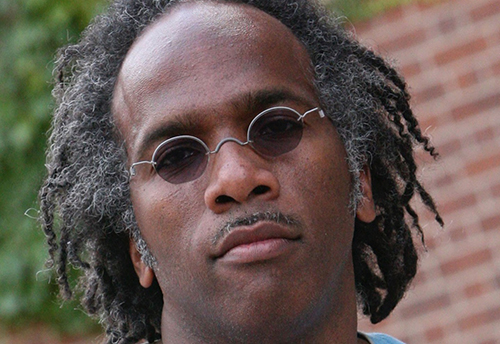
Dominic Taylor is a scholar of African American theatre and a writer-director whose work has been seen across the country. His play I Wish You Love premiered at Penumbra Theatre and was produced at both The Kennedy Center and Hartford Stage in 2012. His play Hype Hero was developed at the Eugene O’Neill Theatre Center in Waterford, Conn., and was produced at Brown University in fall 2014. The Goodman Theatre, Steppenwolf Theatre, Ensemble Studio Theatre and New York Theatre Workshop have all commissioned Taylor’s writing. Taylor is a professor at UCLA in both the Department of African American Studies and the Department of Theatre. He is former associate artistic director of Penumbra Theatre Company in St. Paul, MN.
Commission: Young and Just, Workshop – February 2023
Charlayne Woodard

Charlayne Woodard is an American playwright and actress. Woodard’s two-character play, The Garden, commissioned by La Jolla Playhouse, has upcoming productions in 2021 at both Baltimore Center Stage (summer) and La Jolla Playhouse (fall). Woodard’s solo plays, which she has originated to great acclaim, include Pretty Fire, Neat, In Real Life and The Night Watcher. Her plays are published by Dramatists Play Service and performed at regional theatres around the country. Audio versions are available at Audible.com. As an actress, Woodard has extensive film, television and theatre credits, including playing the role of Kate in The Taming of the Shrew at the Shakespeare Theatre Company (2007).
Commission: A Designer of Note, A Woman Of Style – January 2024
Second Round of Playwrights
Nilo Cruz
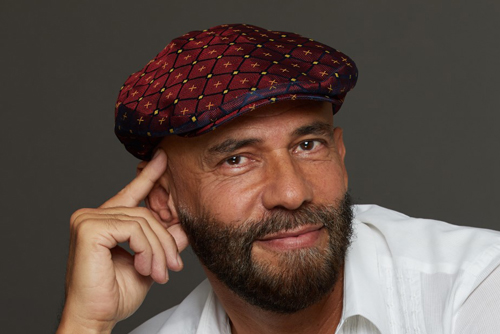
Nilo Cruz is a Cuban American playwright, director, lyricist, scriptwriter and teacher who weaves magical realism into stories about the immigrant experience. Cruz gained international prominence when Anna in the Tropics won the 2003 Pulitzer Prize for Drama, for which he also received a Tony Award nomination. Works include Dancing on Her Knees, A Park in Our House, Two Sisters and a Piano, A Bicycle Country and more. They have been produced at South Coast Rep, Mark Taper Forum, Oregon Shakespeare Festival, Studio, The Public and GALA Hispanic Theatre. He was mentored by Maria Irene Fornes. Affiliations: New Dramatists; past Playwright-in-Residence at McCarter, New Theatre. Teaching: Yale Drama, Brown University, University of Iowa. Training: MFA, Brown; Honorary Ph.D., Whitter College.
Chess
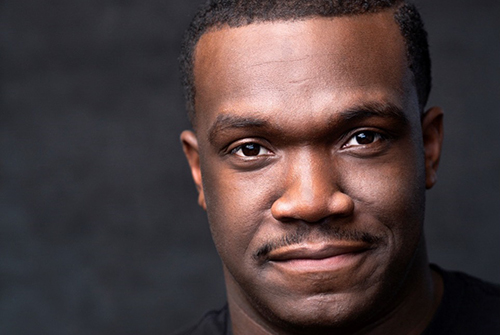
Chess is a Black and Jewish American storyteller and historian. He is the playwright of The American Five. Chess’s work seeks to engage storytelling as a form of historical preservation and cultural engagement. Chess is the Associate Director and Dramaturg of Dracula: A Comedy of Terrors (Off-Broadway/New World Stages, 2023) and Writer/Co-Executive Producer of Sister Nature: Women of Color in the Environmental Movement (under development with People over Plastic). Theatrical credits include: Steppenwolf: Downstate; Indiana Rep: A Christmas Carol; Alliance: Colossal; Olney: Fiddler on the Roof. TV: BET, NBC, Bravo. Affiliations: Member of AEA, Associate Member of SDC and DG. Training: University of Michigan.
Commission: The American Five, Workshop– January 2024
Gloria Reuben

Gloria Reuben is an accomplished Canadian American actress, singer and writer. She played Jeanie Boulet in ER (two Emmy noms., Golden Globe nom.), Elizabeth Keckly in Steven Spielberg’s Lincoln and Krista Gordon in Mr. Robot (opposite Rami Malek). She’s appeared in Raising the Bar, Law & Order: SVU, Showtime’s First Lady and The Equalizer among many other tv series and films. Reuben was a backup singer for Tina Turner in 2000. Solo records include Just For You, and jazz albums Perchance to Dream (2015) and For All We Know (2020) under the MCG Jazz label. She is developing a play about the life of Mary Lincoln’s modiste and confidant Elizabeth Keckly. Gloria’s non-fiction book My Brothers’ Keeper: Two Brothers. Loved. And Lost. was published by Post Hill Press in 2019.
Jeanne Sakata
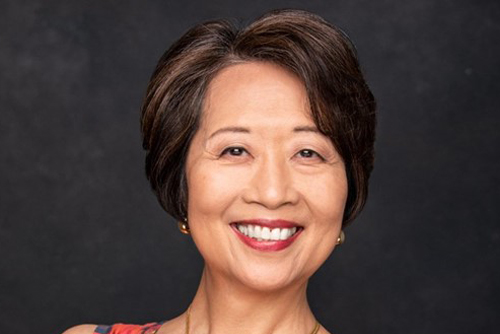
Jeanne Sakata is an award-winning actor and playwright whose versatility spans across theater, television, film, voiceover animation and audiobooks. Center Theatre Group commissioned Sakata’s first play, Hold These Truths. It is produced nationally and internationally and is at the Library of Congress Playwrights Archive in the Asian American Pacific Islander Collection’s Jeanne Sakata Collection, established in 2011. She wrote For Us All for L.A. Theatre Works. Regional: Center Theatre Group: Twilight: Los Angeles, 1992; La Jolla: Here There Are Blueberries (World Premiere). Other: Lincoln Center; Kennedy Center; Vineyard; People’s Light; Northlight; Theatre Works Silicon Valley; Berkeley Rep; ACT San Francisco; ACT Seattle; Portland Center Stage. Awards: L.A. Ovation Award (Outstanding Lead Actress); East West Players Trailblazer Award; Playwrights Arena Lee Melville Award.
Madeline Sayet

Madeline Sayet is a Mohegan theater maker who believes the stories we pass down inform our collective possible futures. For her work as a theater maker, she has been honored as a Forbes 30Under30, TED Fellow and recipient of The White House Champion of Change Award from President Obama. As a writer, her plays include Where We Belong, Up and Down the River, Antigone Or And Still She Must Rise Up, Daughters of Leda, The Neverland and The Fish. The national tour of her play Where We Belong, produced by Woolly Mammoth Theater Company in association with the Folger Shakespeare Library, included such venues as: The Public Theater, The Goodman Theater (Jeff Award Nomination for Best Solo Performance), Seattle Rep (Recipient of Heilman & Haver Award for Best Play), Baltimore Center Stage, Hudson Valley Shakespeare, Philadelphia Theater Company, Oregon Shakespeare Festival, and Portland Center Stage. She is a Clinical Assistant Professor at ASU with the Arizona Center for Medieval and Renaissance Studies (ACMRS) and has served five years as the Executive Director of the Yale Indigenous Performing Arts Program, creating new programs, awards and opportunities for emerging Native Theater artists. Recent directing work includes: Bard at the Gate: Joy Harjo’s Wings of a Night Sky; Perseverance Theater: Tlingit Christmas Carol, Whale Song; Krannert Center: The Neverland, Poppea; Connecticut Rep: Henry IV; South Dakota Shakespeare: Midsummer Night’s Dream; Delaware Shakespeare: As You Like It; HERE Arts: The Winter’s Tale; Glimmerglass: The Magic Flute. www.madelinesayet.com

